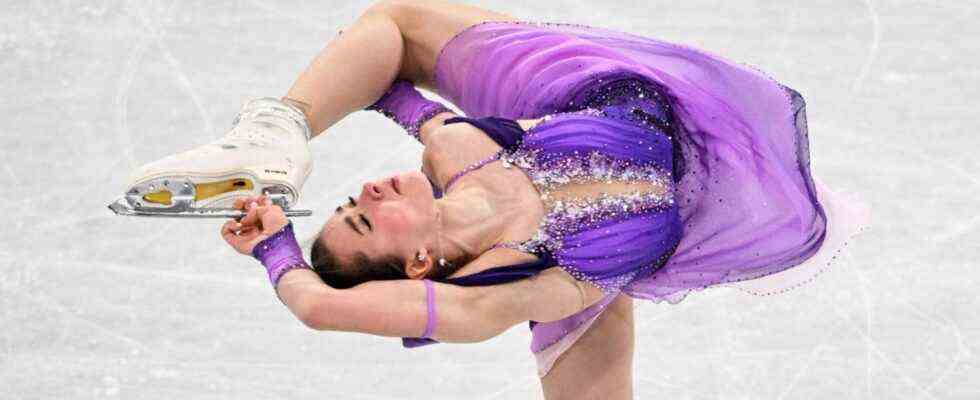opinion
Beijing 2022
Case of Valiyeva – The IOC has too often codled before Russia
Kamila Valiyeva warming up before the short program
© Peter Kneffel / DPA
The case of Russian figure skater Kamila Valiyeva reveals the inability of international sport to credibly combat doping. The IOC and President Thomas Bach are responsible for this with their diaper-soft policy towards Russia.
The case of figure skater Kamila Valiyeva is complicated. It is therefore understandable that the International Court of Arbitration for Sports decided after a hearing that the 15-year-old could compete in the individual competition – despite suspected doping. The preliminary verdict was not about guilt or innocence, but about the question of whether the Russian anti-doping agency Rusada was allowed to lift the ban on Valiyeva after just one day. A final judgment must be reached following regular proceedings. The Cas ruling is also appropriate because it seeks to protect a young athlete who is believed to have had the slightest or no fault. The fact that competition in Olympic figure skating may be distorted as a result can no longer be changed.
If the doping is finally proven, and it can be assumed that it will, the dimension of the case will be enormous – and raises very fundamental questions. First of all, a thorough explanation is necessary. How can it be that it took six weeks before a result was known? Why wasn’t the Russian anti-doping agency Rusada tagged the sample with an urgency notice given the upcoming Winter Games? Who is responsible for a known drug being found in a teenager’s blood? How can you better protect young athletes from exploitation?
Biathlon, ski jumping, tobogganing, skeleton: you are the German medal winners
15 images
The IOC’s dealings with Russia are soft as wax
If you look for answers, you will not only find suspected criminal behavior on the part of the Russian authorities, but also the International Olympic Committee and President Thomas Bach. On the surface, they’re out of the game. The IOC as well as the World Anti-Doping Agency Wada have complained to the Cas and tried to prevent Valiyeva from starting. It would have been a simple solution, the case quickly disappeared from the media and the topic buried (for the time being).
In this way, however, attention is drawn to the IOC’s soft handling of Russia. again. As a reminder, the country is officially banned from the Olympics. The reason for this was originally the proven state doping around the Sochi Winter Games. The IOC punished Russia with the exclusion from the summer games in Rio de Janeiro. But found a compromise to mitigate the penalty: The athletes are allowed to compete, just not under the Russian flag. And at awards ceremonies, Tchaikovsky’s Piano Concerto No. 1 is played instead of the Russian anthem. In 2019, Wada (this time the responsible authority) imposed another ban on the games in Tokyo and Beijing and on the World Cup in Qatar in 2022 because Russia had massively falsified doping data that it was supposed to submit for investigation.
Evaluation of the sample was apparently delayed
And now the Valiyeva case. It already shows that the IOC’s gentle handling of Russia has had no effect and that a suspected doped figure skater has slipped through the control net. Apparently everything was done on the Russian side to delay the evaluation of the sample. Even more ridiculous are the attempts at explanation by Valiyeva’s lawyers. She drank from her grandfather’s dirty glass. Eight years after state doping was uncovered in Russia, it is now clear that the IOC missed a great opportunity in dealing with the scandal. The IOC is also responsible for the fact that there was a Valiyeva case at all.


